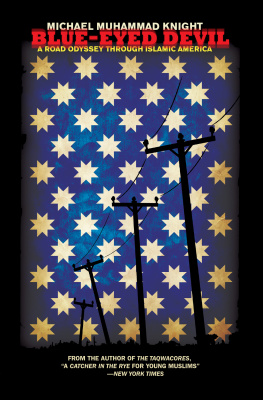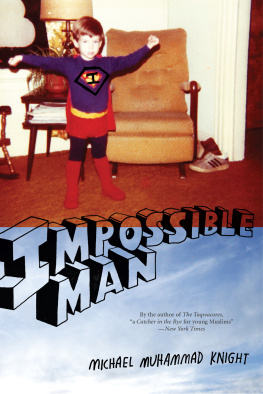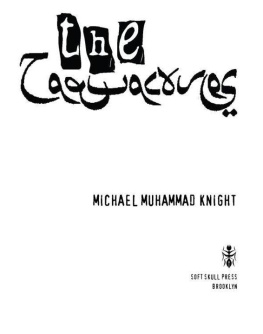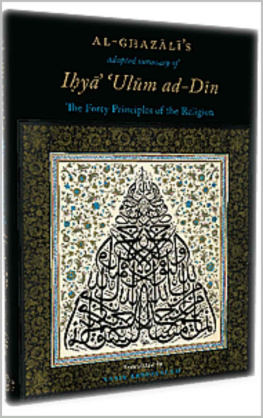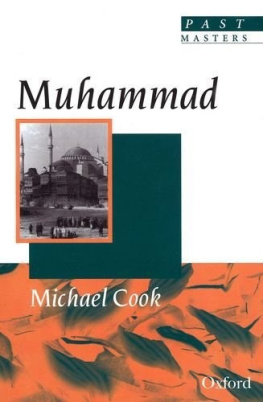Michael Muhammad Knight - Muhammad: Forty Introductions
Here you can read online Michael Muhammad Knight - Muhammad: Forty Introductions full text of the book (entire story) in english for free. Download pdf and epub, get meaning, cover and reviews about this ebook. year: 2019, publisher: Soft Skull Press, genre: Non-fiction / History. Description of the work, (preface) as well as reviews are available. Best literature library LitArk.com created for fans of good reading and offers a wide selection of genres:
Romance novel
Science fiction
Adventure
Detective
Science
History
Home and family
Prose
Art
Politics
Computer
Non-fiction
Religion
Business
Children
Humor
Choose a favorite category and find really read worthwhile books. Enjoy immersion in the world of imagination, feel the emotions of the characters or learn something new for yourself, make an fascinating discovery.

- Book:Muhammad: Forty Introductions
- Author:
- Publisher:Soft Skull Press
- Genre:
- Year:2019
- Rating:3 / 5
- Favourites:Add to favourites
- Your mark:
- 60
- 1
- 2
- 3
- 4
- 5
Muhammad: Forty Introductions: summary, description and annotation
We offer to read an annotation, description, summary or preface (depends on what the author of the book "Muhammad: Forty Introductions" wrote himself). If you haven't found the necessary information about the book — write in the comments, we will try to find it.
Michael Muhammad Knight: author's other books
Who wrote Muhammad: Forty Introductions? Find out the surname, the name of the author of the book and a list of all author's works by series.
Muhammad: Forty Introductions — read online for free the complete book (whole text) full work
Below is the text of the book, divided by pages. System saving the place of the last page read, allows you to conveniently read the book "Muhammad: Forty Introductions" online for free, without having to search again every time where you left off. Put a bookmark, and you can go to the page where you finished reading at any time.
Font size:
Interval:
Bookmark:
Table of Contents
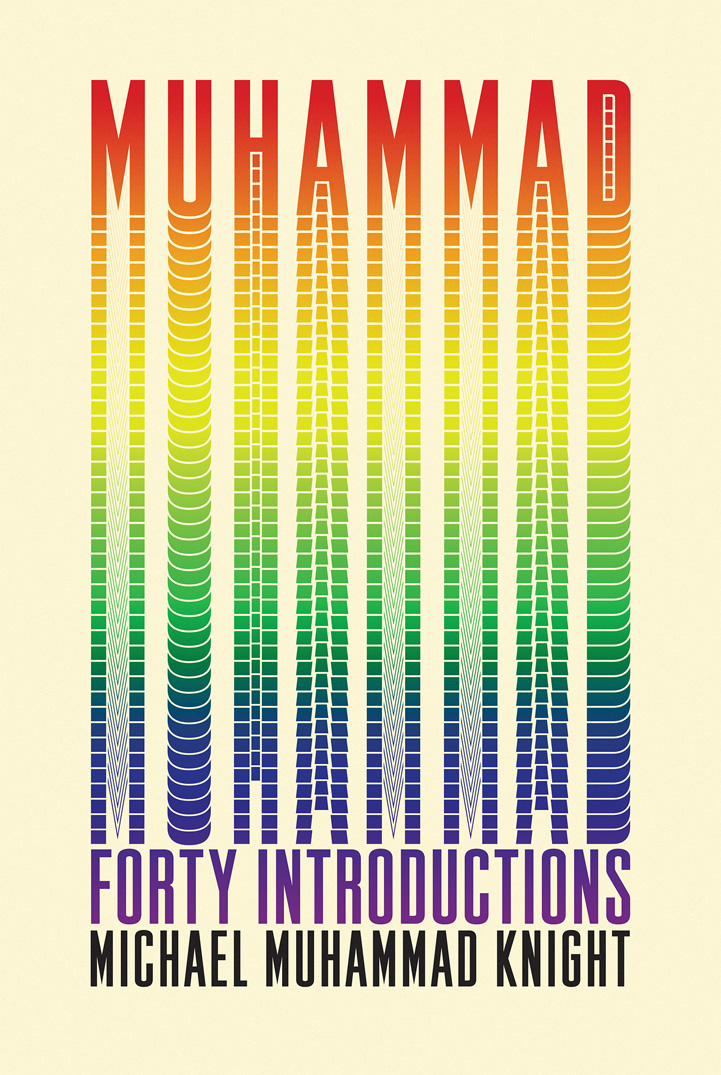

ALSO BY MICHAEL MUHAMMAD KNIGHT
The Taqwacores
Blue-Eyed Devil
The Five Percenters
Osama Van Halen
Impossible Man
Journey to the End of Islam
Why I Am a Five Percenter
William S. Burroughs vs. the Quran
Tripping with Allah: Islam, Drugs, and Writing
Why I Am a Salafi
Magic in Islam
MUHAMMAD: FORTY INTRODUCTIONS
Copyright 2019 by Michael Muhammad Knight
All rights reserved
First Soft Skull edition: 2019
Library of Congress Cataloging-in-Publication Data
Names: Knight, Michael Muhammad, author.
Title: Muhammad : forty introductions / Michael Muhammad Knight.
Description: New York : Soft Skull, [2019] | Includes bibliographical references.
Identifiers: LCCN 2018040347 | ISBN 9781593761479 (pbk. : alk. paper)
Subjects: LCSH: Muhammad, Prophet, -632Hadith. | Muhammad, Prophet, -632Biography. | HadithTexts.
Classification: LCC BP135.8.M85 K65 2019 | DDC 297.6/3dc23
LC record available at https://lccn.loc.gov/2018040347
Cover design by salu.io
Book design by Wah-Ming Chang
Published by Soft Skull Press
1140 Broadway, Suite 704
New York, NY 10001
www.softskull.com
Soft Skull titles are distributed to the trade by
Publishers Group West
Phone: 866-400-5351
Printed in the United States of America
1 3 5 7 9 10 8 6 4 2
To Azreal with love, from Azreal Wisdom
CONTENTS

Ali bin Hujr reported to us that Ishaq bin Najih reported to us on the authority of Ibn Jurayj, on the authority of Ata bin Rabah, on the authority of Ibn Abbas, who said:
The Messenger of God (God bless him and give him peace) said, Whoever preserves for my community forty hadiths from the Sunna, I will be an intercessor for him on the Day of Resurrection.
Who is this Messenger of God for whom the stakes of memory are so high? For more than twenty years now, I have worn his name as my own, but still ask the question. If the above narration serves as our first glimpse of him, what does it show us? How much of the man could we retrieve from the promise he makes here?
Before approaching his words, we must first walk through names. This narration comes to us from the Forty Hadiths collection by Imam al-Nasawi (d. 915), who cites as his sources chain of teachers: al-Nasawi reports from a scholar of the preceding generation, Ali bin Hujr (d. 859), who cites an earlier authority, who in turn cites an older scholar than himself. At the end of the chain, we find Ibn Abbas, Muhammads cousin, telling us what Muhammad had said.
After the chain of names, we encounter Muhammads title, Messenger of God (rasul Allah), and immediately after this we read a prayer for peace and blessings upon him: our knowledge of Muhammad comes to us through those who loved him and believed in his prophethood. Finally, we arrive at the message: Muhammad tells us that anyone who preserves forty hadiths from the Sunna will have Muhammad himself advocating for that person on the Day of Resurrection.
The narration introduces key terms. The word used here for narration, hadith, literally means news or report and signifies the sayings and actions of Muhammad, or things said and done in his presence to which he did not object; this particular hadith therefore speaks on the virtues of the body of knowledge to which it belongs. Sunna, meaning custom or precedent, has come to represent the body of reported memories concerning Muhammads statements, habits, and preferences, establishing both his teachings and personal behavior as a template for how to live as a human in the world.
This hadith tells us that there is a Day of Resurrection and that the Messenger of God, many centuries after the end of his prophetic mission and earthly life, continues to play a crucial role in the salvation of humankind. He can act as our lawyer, interceding on our behalf. We see that an articulation of Islam centered primarily on the hadith tradition could offer a profound departure from one centered on other sources, such as the Quran; the Quran does not clearly name Muhammad as an intercessor on the Day, and many readers interpret the Quran as expressing a generally pessimistic view of humans prospects for intercessors with God. It is within the hadith tradition that Muhammads advocacy becomes available, and the narration informs us that it becomes available specifically to the person who preserves forty hadiths from the Sunna.
The Arabic word used for preserve in this narration carries meanings associated with memorization. For historical settings in which oral tradition wielded greater authority than written textsand in a world before paper technology, let alone the digital storage of informationto preserve knowledge meant becoming an embodied archive. The hadith memorizer commits to defending Muhammads historical memory against the losses wrought by time and, by doing so, serves the broader salvation of humankind, and thus earns Muhammads help for his or her own salvation. This hadith empowers its own narrators, promising them extraordinary privilege in the next world.
The Messenger did not leave behind a written autobiography or a copy of his daily schedule; we know him only through the memories of those who had been in his presence, who shared their recollections with those who had been born too late to know him. The names we walk through here show us the mediations by which Muhammad becomes the Muhammad whom we can access. Family members and friends who gave their reports as eyewitnesses to Muhammad, designated with the capitalized title Companions, became powerful custodians of the sacred past, and themselves continue to speak via their students, their students students, and so on. The Muhammad we find on this page is not simply an individual person who lived at a particular moment in history, but an assemblage formed by encounters between generations. In addition to being a specific body that lies entombed in Medina, Muhammad is also an oral tradition spanning centuries.
The scholarly producers of this oral tradition, while reporting with conviction in Muhammads supreme authority as the Messenger of God, in turn authorize him: they wield the power of their reputations as scholars and pious Muslims to vouch for these words as reflecting Muhammads actual speech. In this roster of scholars reporting on Muhammad (and one another), we witness the prophetic assemblage as it takes form.
The collected body of oral traditions reporting Muhammads words and actions is not the work of a single scholar, but of thousands of individuals. Nor is this marked as the domain of a united Muslim community held together by shared methods or a uniform roster of trustworthy experts. The people who knew and followed Muhammad in his own lifetime appear in the sources as having disagreed with one another on matters of correct belief and practice, and often gave conflicting accounts of what Muhammad had said. In the generations after Muhammad, networks of transmitters based in specific geographic centers came to be associated with particular theological, legal, or sectarian positions. But as scholars traveled between cities such as Basra, Kufa, and Baghdad to collect narrations of the Prophet, these local networks increasingly blended into one another, giving the appearance of a singular, monolithic body of scholarship. The collection of oral traditions into book form further masked the heterogeneity of Muhammads reporters, presenting these thousands of scholars as collaborators in a shared project.
Next pageFont size:
Interval:
Bookmark:
Similar books «Muhammad: Forty Introductions»
Look at similar books to Muhammad: Forty Introductions. We have selected literature similar in name and meaning in the hope of providing readers with more options to find new, interesting, not yet read works.
Discussion, reviews of the book Muhammad: Forty Introductions and just readers' own opinions. Leave your comments, write what you think about the work, its meaning or the main characters. Specify what exactly you liked and what you didn't like, and why you think so.

